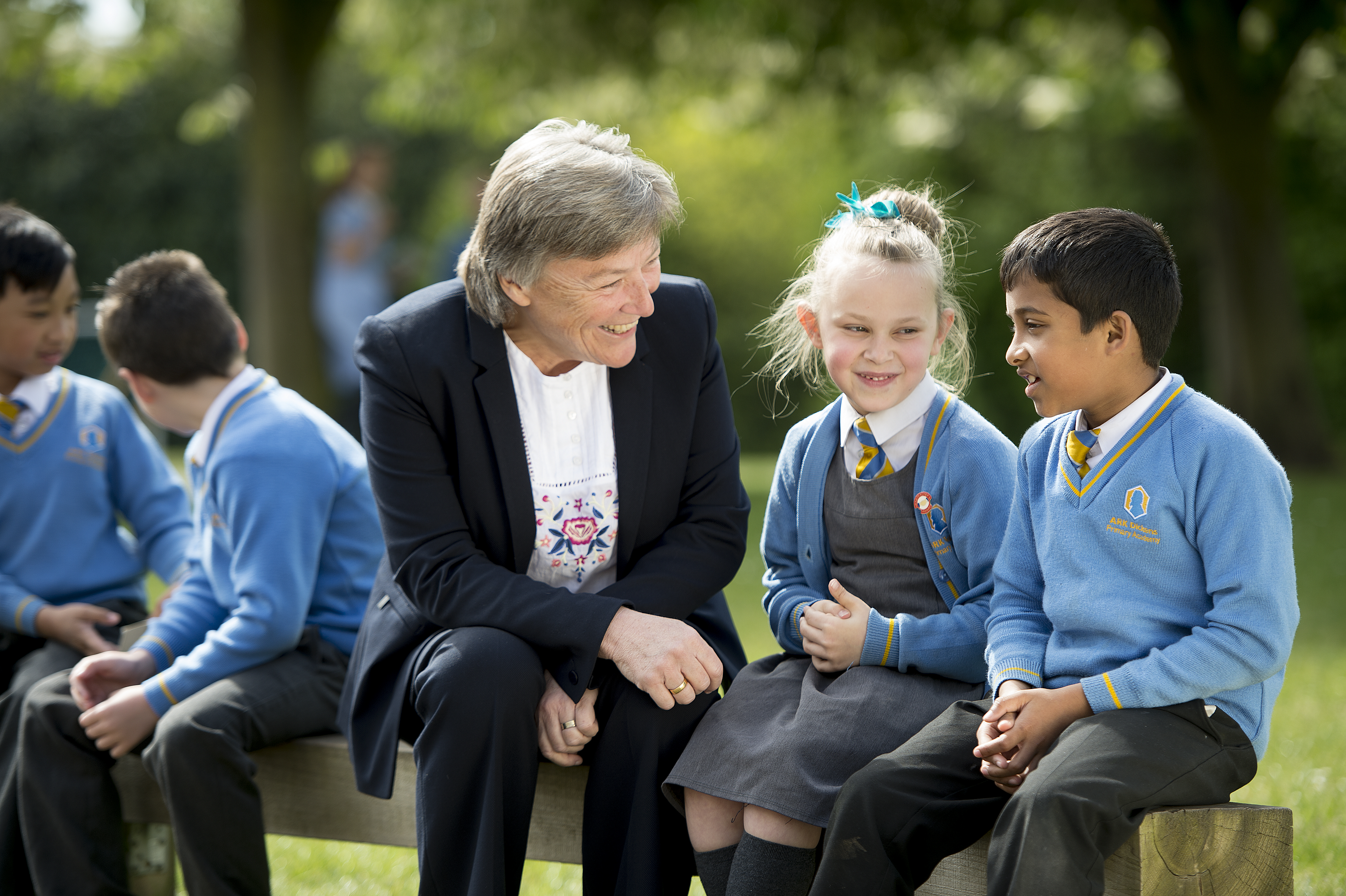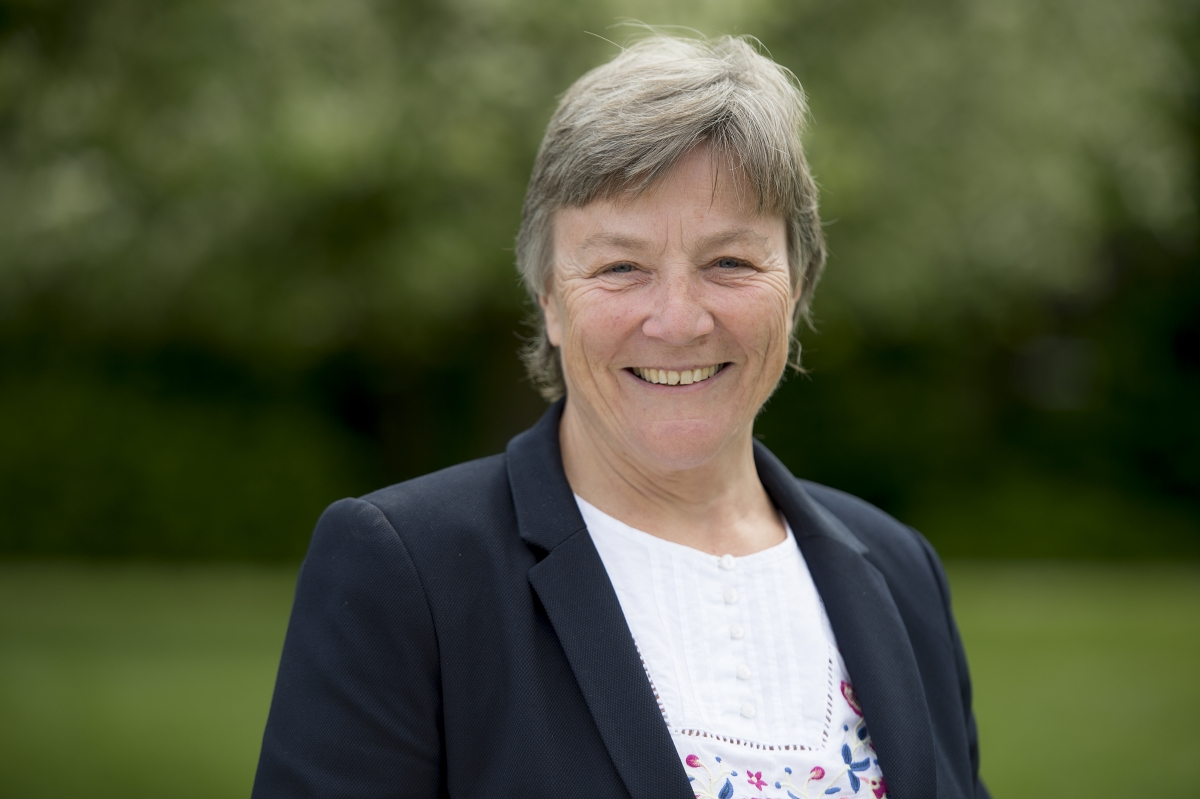Joy Waelend is the Executive Principal of Ark Ayrton Primary Academy and Ark Dickens Primary Academy in Portsmouth. She was recently interviewed on BBC Radio Solent about how education in primary schools has changed over the years.
"In the last 30 to 40 years there’s been huge amounts of change. I started my teaching career in 1981, in the same school where I myself was a pupil. On my walk to work I would think, ‘I’ve got to cover the Victorians today – what shall I do? Could we do some story-writing, or some history or geography connected to that topic?’ Whereas now, my teachers in the two Ark primaries that I am responsible for have to plan every minute of the day – to make sure we get the maximum output from these young people, whilst ensuring they are enjoying their education.
"I noticed the biggest change when formal testing came in. I think parents want to know how well their child is doing. I can’t think of much worse than them reaching age nine, ten or eleven and suddenly finding out that your child is not able to read, write, spell or manipulate numbers at a certain level. But in education, it’s all about getting the balance right. I agree that children should be allowed to play, but it’s also important that we are able to interpret that play and assess their ability. It allows us to identify which children might need a bit of extra support or are gifted and talented in particular areas.

"One of the biggest areas that we look at is speech and language. It’s crucial that when children go into reception they are able to make themselves known and understood. We also give children opportunities to play with their writing, so that they are confident to put pen to page and begin to write letters and sentences. I would want children who are entering reception to feel confident in having a go at reading some words in a book and to be able to listen to stories. Some will do that much younger and some will do that much older, but the earlier the exposure to books and reading, the better. Of course you can’t put all five year olds into a box and say, ‘Every five year old will be able to write their own name, write a sentence, read a book’. They all do things at different times. But the basics of reading and being able to begin to write words correctly are all part of a very important start to life.
"The national curriculum is very clear now in its expectations on primary schools. From my observations in Ark Dickens and Ark Ayrton, I see our teachers teaching the times tables to our children in ways which are bringing about improved outcomes. They are also generating a greater interest towards mathematics in our pupils. We teach the children to roll their numbers so that they’re counting in fives and tens. We have morning sessions where they are asked to complete mental calculation very quickly in a variety of different ways, so it’s not just one method of encouraging learning. We do chanting, and learning tables to disco music – because children are very good at remembering lyrics – and also there are many interactive programmes that the children can use. The BBC produces a huge amount of really good material where they can add speed, and practise not only their tables but also their mental calculation.
“My first classroom of 42 children in 1981 contained rows of desks with lids. Now in schools, furniture is movable and I think it’s really important that the children have the opportunity to work in pairs or put their desks together and collaboratively problem-solve in groups. The teacher is no longer the sole deliverer of information to the children. Things have changed because information and questions come to children from a whole variety of sources.

“Blackboards have gone too. In most modern classrooms you see an interactive smartboard or a smart TV, that enables the teachers to project images on the screen. That in a sense brings with it some disadvantages because if the internet goes down, teachers are a bit lost! The best teachers use a mixture of technology and the more traditional forms of teaching. High quality teaching is not about what’s on the screen. Otherwise, we’d just be in a world where we tell the children. ‘Just look at the screen, it’s all up there’, but the passion of the teacher, to be able to take what’s on the screen and make it live and breathe, is an absolute gift that we have to craft. So in the classroom, I would not expect lessons where everything is on the whiteboard. The teacher needs to be able to inspire and motivate without any visual resources.
“Arts, drama and sport aren’t being pushed into the background in our schools. Ofsted is very keen on the correct balance across all curriculum subjects. I think if you were to speak to any headteacher of an outstanding school, they would want to have not only outstanding mathematicians and scientists but also great musicians and great historians. My first degree was in PE so I’ve got a real passion for not just doing the reading, writing and the mathematics. I do think that it is a balance that some schools find tricky. We need to work harder on that.
“We have some issues in our schools with young children, 10 or 11 year olds, having smart phones and using social media. When I was much younger, all of my spare time was spent outside playing or reading. In schools now, it’s all about using technology positively to inspire our young people. We have to run with the technology, but we get that balance by using a pen or pencil, by getting outside and enjoying ourselves and being physically well, as well as being intellectually very capable.”
If you'd like to get regular updates from Ark, including teaching tips and best practice, sign up for our newsletter: arkonline.org/newsletter

